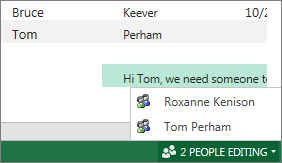

I lead the project ESKE (Ermittlung erstsprachlicher Kompetenzen in der Erstsprache) at the School of Education FHNW. ESKE is a first language assessment material aimed at teachers responsible for newly arrived children and adolescents attending school in… Read more The theoretical framework of the study draw on socially informed second… Read more


This dissertation investigates learner beliefs, language ideologies, self-positioning, and language use among a group of Swiss university students of Danish as a foreign language. This finding leads to a theoretical discussion of the notion of polylanguaging, particularly how the concepts of stylisation, ideologies, repertoire, and awareness can be integrated into the definition of polylanguaging. In some cases, the participants use features generally thought to belong to different languages for language play, but in most instances the participants try to use features that are exclusively associated with Danish, and their use of features generally thought to belong to different languages is not intentional. The beliefs and ideas held by the participants are compared with the way they use language in written and oral form. This self-positioning is closely linked with the classroom setting. Self-positioning is carried out by the participants at the earliest stages of language learning, and the position themselves as high expectancy students, language experts, and hard-working students. The participants express ideas about language as a system, languages as separate entities, and authentic target languages. The participants further express ideas about language and language learning, which relate to institutional and societal language ideologies. The change from a structural to a communicative focus may be explained by a socialisation process during the course, or by changes in the participants’ perceived and actual sociolinguistic progression. The beliefs held by the participants are influenced by their comprehensive experience with language learning. In what ways do the participants use linguistic features generally thought to belong to different languages, to what degree can their language use be compared with polylingual behaviour, and how does their language use relate to the beliefs and ideologies expressed by the participants?ĭuring three semesters, or a year and a half, three types of data were collected from the 49 participants: Questionnaires for background knowledge, learning journals for the study of beliefs and ideologies, as well as individual and group audio recordings for the study of language use.Īt the beginning of the three semester course, the participants generally express structure-focussed beliefs about language and language learning, whereas at the end of the course, they focus more on communicative approaches to language learning.How do the participants present themselves in terms of beliefs, ideologies, and self-positioning?.What do Swiss university students of Danish as a foreign language believe about language and language learning, why do they hold these beliefs, and how do the beliefs relate to language ideologies?.The theoretical framework of the study draw on socially informed second language acquisition (SLA) research and on late modern sociolinguistics.


 0 kommentar(er)
0 kommentar(er)
